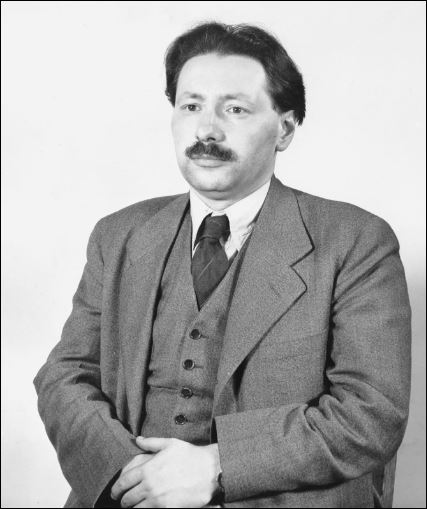Why was Ernst Boris Chain Awarded the Nobel Prize for Physiology or Medicine in 1945?
Ernst Boris Chain: Nobel Laureate for Pioneering Research on Antibiotics and Penicillin (1945)
Ernst Boris Chain, a German-born biochemist, played a crucial role in one of the most significant medical breakthroughs of the 20th century. Renowned for his groundbreaking research on antibiotics and the isolation of penicillin, Chain made revolutionary contributions to the field of medicine. In recognition of his exceptional work, he was awarded the Nobel Prize for Physiology or Medicine in 1945. This article explores the reasons behind Chain’s prestigious honor and highlights his remarkable scientific achievements.

The Isolation of Penicillin:
Ernst Boris Chain’s Nobel Prize was primarily awarded for his role in the isolation and production of penicillin. Collaborating with Howard Florey and Alexander Fleming, Chain contributed significantly to the development of penicillin as a life-saving antibiotic.
Penicillin, originally discovered by Fleming in 1928, was a powerful antibacterial agent, but its therapeutic potential remained untapped due to challenges in purification and production. During World War II, the urgent need for effective antibacterial treatments led to intensive research efforts to harness the benefits of penicillin.
Chain’s expertise in biochemistry and enzymology proved invaluable in devising methods to isolate and purify penicillin. His work was instrumental in developing large-scale production techniques that made penicillin available for medical use, ultimately saving countless lives during the war and beyond.
Impact on Medicine:
Ernst Boris Chain’s contributions had a transformative impact on the field of medicine. The isolation and mass production of penicillin revolutionized the treatment of bacterial infections, leading to a significant reduction in mortality rates from previously life-threatening diseases.
Before the availability of penicillin, bacterial infections such as pneumonia, sepsis, and wound infections posed serious threats to human health with limited effective treatments. The advent of penicillin marked a turning point in modern medicine, as it provided a powerful tool to combat bacterial infections and improve patient outcomes.
Pioneering the Age of Antibiotics:
Chain’s work on penicillin marked the beginning of the “antibiotic age,” where researchers explored the potential of other antimicrobial agents to combat bacterial infections. The discovery and development of antibiotics like streptomycin, tetracycline, and erythromycin further expanded the medical arsenal against bacterial diseases.
The emergence of antibiotics revolutionized medical practice, enhancing the capacity to control infectious diseases and improving public health worldwide. Antibiotics have become an indispensable part of modern medicine, used not only to treat bacterial infections but also in surgical procedures, cancer therapy, and other medical interventions.
Recognition and Legacy:
Ernst Boris Chain’s Nobel Prize in 1945 celebrated his exceptional scientific achievements and the transformative impact of his research on antibiotics. His collaboration with Florey and Fleming paved the way for the development of penicillin and its widespread application in medicine.
Chain’s work inspired generations of researchers to explore the potential of antibiotics and other antimicrobial agents. His legacy continues to guide efforts to combat bacterial infections and address the challenges posed by antibiotic resistance, ensuring the continued effectiveness of these life-saving drugs.
Ernst Boris Chain’s Nobel Prize in 1945 honored his pioneering contributions to the field of medicine and his pivotal role in the isolation and production of penicillin. His expertise in biochemistry and enzymology significantly advanced the development of penicillin, a transformative antibiotic that revolutionized medical practice and saved countless lives.
Chain’s work continues to be a testament to the power of scientific collaboration and innovation in uncovering life-changing breakthroughs. His contributions have left an indelible mark on the field of medicine, inspiring ongoing efforts to develop new antibiotics and combat infectious diseases, thus improving human health and well-being on a global scale.




